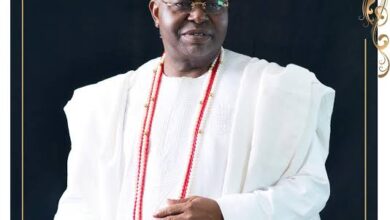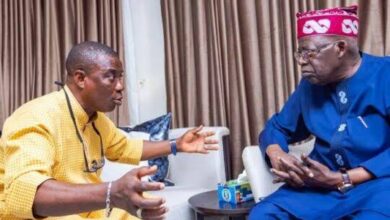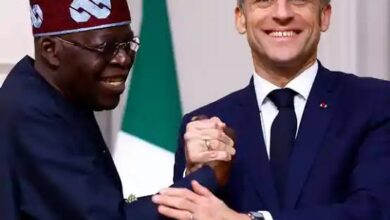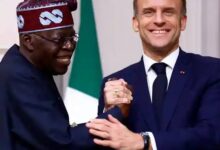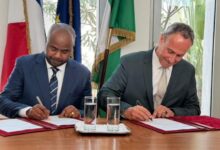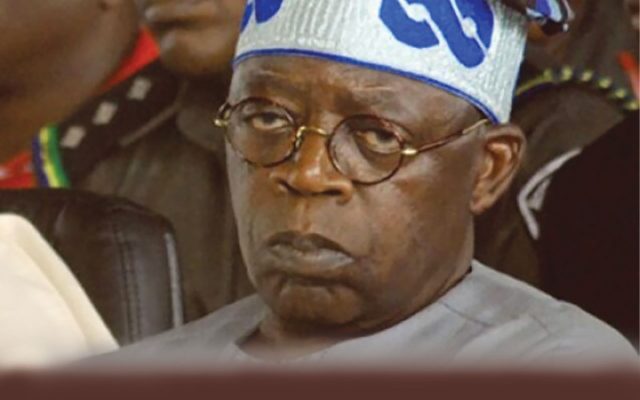Keynote Speech by Senior Special Assistant to the President on Foreign Affairs and Diaspora, delivered at the Enfranchising the African Diaspora Conference, by Institute of African Studies, University of Ibadan, Ibadan, on Wednesday June 21, 2017
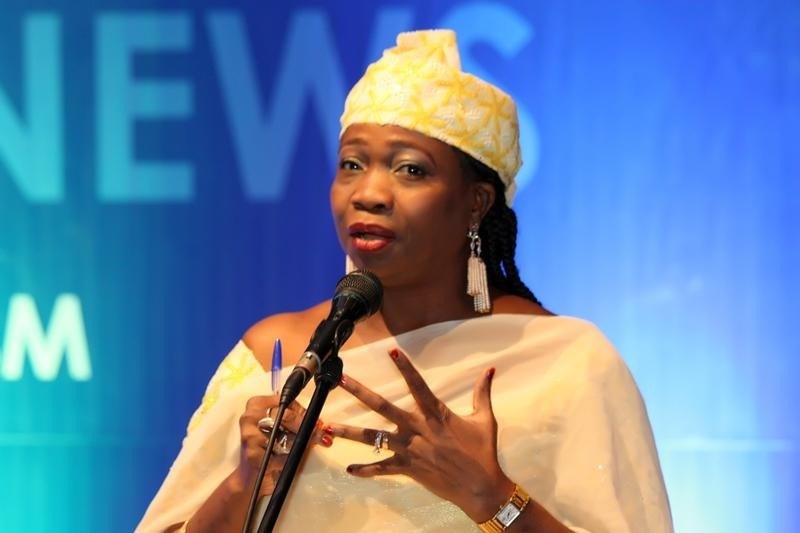
I am delighted to be here again at the Institute of African Studies, University of Ibadan. You would recall that I was here in 2015 for a distinguished personality lecture, engaging and rubbing minds with everyone on the subject of Nigerian Diaspora and Gender Relations in the 21st Century. I am fast becoming a member of this great community of scholars and I am tempted to call you all my family.
So, I appreciate you for extending this invitation to me again. Let me first express my sheer delight at what we are witnessing here today. It’s quite rare to find any institution bringing together two critical issues – elections and the Diaspora – that have become markers of our evolving nationhood.

We are quite aware that discussions about Diaspora can no longer be relegated to the academic backwaters.
The A.U, for example, had in 2003 declared Africa’s diaspora as its sixth region and equally the Nigerian Diaspora, according to the World Bank, has contributed over $50billion to the nation’s GDP in the last two years. This doesn’t speak only to the growing size of the Nigerian Diaspora but its influence too. This brings with it the need to examine certain dynamics, intricacies and realities of the Nigerian Diaspora. How the nation leverages on its Diaspora’s influences and the challenge that brings, while also working assiduously to advance the balance necessary for inclusive governance, especially on the subject of electioneering participation in the country, are important representations of our change rhetoric. This is the kind of conversation that should begin to shape both our academic and public dialogues, even as another election year beckons. This is the kind of dialogue, I suspect, we intend to have here today.
Without sounding immodest, let me remind us that my tenure as Chairman of the House of Representatives Committee on Diaspora Affairs saw a surge in the wider discussion of the Diaspora and its relevance to the nation, promoting a spirit of patriotism, networking, and cooperation. During that time, we founded the Diaspora magazine which chronicles the life and experiences of many Nigerian achievers in the Diaspora, and how the House Committee under my leadership sought justice for many Nigerians who were deprived of it in the Diaspora. Thankfully, with the new government, we are now seeing the discussion of the Diaspora speedily taking the center stage of national discussion. You would recall the Diaspora day celebration hosted in Abuja which members of this Institute actively participated in. I am currently the Senior Special Adviser to the President on Diaspora.
In my capacity as the SSA to the President on Diaspora, I have been quick to convey the nation’s congratulatory messages to Nigerians who keep flying the nation’s flag high wherever they are. Recently, seven Nigerians won parliamentary seats in the just concluded UK election. Anthony Joshua equally won the WBA lightweight boxing championship in London and proudly attributed his victory to his Nigerian heritage and rich cuisines. We have equally facilitated the return of several Nigerians who were stranded in Libya, Angola and Turkey, in conjunction with agencies like NEMA, NAPTIP and National Refugee Commission. An MOU was recently signed between my office and the Bank of Industry which affords Nigerians in the diaspora the ease of transacting business in Nigeria.
Any Nigerian who wants to invest in any sector of the Nigerian economy is given soft loans to pursue this. So, I am passionate about everything that affects the Diaspora because I recognise the potential power of its political economy in advancing the nation in its desired pursuit of peace, progress and development.
Similarly, my office in conjunction with major stakeholders had a national conference geared towards having a Diaspora Policy for the country. The document is being fine-tuned.
You would all recall that the immediate past Chairman of INEC, Professor AttahiruJega, in one of his farewell speeches had mentioned the need for continuity in some of the reform processes initiated during his time as the INEC Chairman. ProfessorJega had called for an amendment of sections 77(2) and 117(2) of the 1999 Constitution to allow Nigerians in the diaspora of voting age to participate in the 2015 elections. I had equally made a similar call in 2012 when I was Chair of the House of Representatives Committee on Diaspora Affairs. I and six other House members sponsored a Legislative Bill that sought to amend Nigeria’s Electoral Act 2010 in order to grant Nigerians in the Diaspora the right to vote during 2015 general elections in Nigeria. Nigeria’s Electoral Act 2010 made provisions for the establishment and functions of the Independent National Electoral Commission, the Procedure at Elections; National Voters Register and Voters Registration; Formation, Functions and Powers of Political Parties; Electoral Offences, among other things. But it did not make provision for voting rights for Nigerians in the Diaspora during general elections. It was that lacuna our sponsored bill was expected to fill. However, our efforts didn’t materialise towards the 2015 general elections and over *30 million Nigerians living abroad were disenfranchised.
I do not think that time would allow me to give a detailed summary of the provisions of the Bill. But it is worthy of note that this bill was divided into five sections. The bill dealt with the proposed amendment of the Principal Act; the establishment of the offices of the electoral commission within and outside Nigeria, by amending certain sections of the Principal Act; the qualification for registration for the purposes of voting in elections; amongst other interventions and introductions of new Subsection in the Principal Act.
Part of our argument for the proposed bill was that it did not contravene the constitution of the Federal Republic of Nigeria. On the other hand, we felt strongly that enfranchising the Nigerian diaspora would rather strengthen the following constitutional issues as provided for in the 1999 Constitution of the Federal Republic of Nigeria as amended;
- Franchise: Right to vote and be voted for;
- Rights of representation;
- Right to choose a candidate in an election;
- Right to be informed of what representatives are doing with your mandate (Constituency Briefing);
- Right to ascertain the level of constituency development; and
- Right of recall.
In retrospect, I would agree that there might be grey areas in the bill that could require widercoverage but the validity of Nigeria Diaspora’s participation in our election decisions remains sacrosanct. First, many Nigerians in the diaspora have been major, active stakeholders in our socio- economic development; considering their investments in the country, remittances, and attraction of technical experts across the globe to the country. Their participation will further deepen their stake in nation building and further confer some measure of credibility on our electoral process. Also, I am convinced that it is their fundamental political right to exercise such constitutional privileges as enshrined in the Nigerian constitution. Enfranchising Nigerians in the diaspora was a long shot, years back, but it is fast becoming a reality. I still feel committed to this and by extension the African diaspora.
I consider the elaborate background of the Nigerian example as a reflection of the challenge faced by other African nations on this subject of diaspora voting. Enfranchising the African diaspora is a side effect of global democratization. My argument for enfranchising the Nigerian diaspora chimes with what should subsist in an extensive sense with the African diaspora. Since the African Union recognises and sanctions the centrality of its Diaspora to the continent’s development, it behoves nations within the union to advance, support and sustain the need to formulate and implement policies that accommodate the possibility of diaspora voting. I am thinking of the major economic stake some African diasporans have in their homelands vis-à- vis the political diffusion of such interventions. I remember watching a BBC documentary once about the role Somaliandiasporans in the UK play in sustaining the socio-economic fabric of the nation, considering how ravaged the county is by terrorism and insecurities. What the film’s investigation portrayed to me is how, rather unconsciously, perhaps driven by the filial necessity of responsibility, the Somalians in the UK, primarily working class asylum seekers, have helped to keep the hope of many alive in their homeland through remittances. And many Africans, like the Somalians, in the diaspora have equally been that instrumental to their homeland. It might just be fair and logical to extend voting privileges to them also.
There are several ways African nations can move to enfranchise their Diaspora. When adequate legislative frameworks have been affirmed, votes can be cast from abroad through several different modalities: voting in person in the African nation’s consulates, embassies or polling stations abroad, or sister-nations where some nation’s embassy presence is non-existent; voting by mail which is already practiced in one or two African countries; voting by proxy; or voting electronically through information and communications technology. I do not propose an absolute or sweeping legislative framework. The political climate of individual nations should dictate the texture of the policy formulation. Such policy must factor methods of resolutions and interventions in cases of election disputes and post-election conflicts, which are still challenges within the continent. There must also be clarity about the Gender question and inclusion. These, for me, are critical considerations in giving a sound, legislative framework to enfranchising the African diaspora.
Let me conclude by once again appreciating the Institute of African Studies for setting up this conference. I have observed that the strongest points of the Institute’s programmes have been how they have continuously interfaced with government in engaging issues that are critical to our nation’s developmental policies and societal changes. We all know this has been an era of change and on their part, they have continued to engage and interrogate their own space and place of contribution in it by providing intellectual platform for public discussions and interventions that bring critical, societal issues to the attention of all stakeholders in this re-building process of our nation. This is what is happening here today and it is highly commendable.
I am therefore honoured to have given this keynote address. I appreciate everyone for listening and I wish us an engaging and fruitful time.
Thank you.


